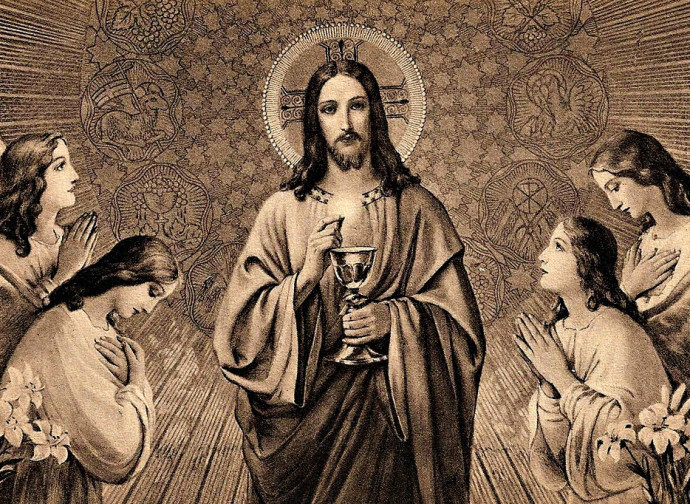Saint Paschasius Radbertus
Saint Paschasius Radbertus (c. 790-865) is considered the greatest theologian of the 9th century for his treatise on the real presence of Christ in the Eucharist, as well as for some works on Mary. He intuited the Virgin Mary's Immaculate Conception and wrote that “she was exempt from all original sin”.

He is considered the greatest theologian of the 9th century for his treatise on the real presence of Christ in the Eucharist, as well as for some works on Mary. He intuited the Virgin Mary's Immaculate Conception and wrote that “she was exempt from all original sin”.
One can say that Saint Paschasius Radbertus (c. 790-865) had from the beginning a particular bond with the heavenly Mother. Shortly after his birth he was abandoned on the steps of the church of Notre Dame in Soissons: here he was found by some Benedictine nuns who took care of the foundling together with the monks in the monastery in the same town, where he was baptized with the name of Radbertus. Around the age of 22 he decided to enter the monastery of Corbie, led by Saint Adalard, brother of the abbess who had taken care of him and whom the boy understandably adored.
The saint took the religious name of Paschasius and divided his monastic life between prayer, study and teaching. In full maturity, between 831 and 833, he composed his most famous writing, De Corpore et Sanguine Domini, a broad and profound exposition on the nature of the Eucharist. Like the Fathers of the Church before him, including Saint Ambrose, Paschasius explained that Christ's words at the Last Supper (“Take and eat. This is my Body”; “Drink of it all, for this is my Blood of the covenant, shed for many, in remission of sins”) literally and clearly express the presence of the historical Body of Christ in the consecrated Host, which “nourishes the soul and raises the flesh itself to immortality and incorruptibility” of the faithful who consume it.
One of his confreres, Ratramnus of Corbie, wrote a counterpoint contesting Paschasius' conception. But the saint's solid arguments prevailed and constituted a very important contribution to the definition of the doctrine on transubstantiation, a term that would appear for the first time in a passage written around 1150 by Rolando Bandinelli, future Pope Alexander III. After many years as an exemplary monk in Corbie, lived out in humility and full compliance with the rule, in 844 Paschasius was chosen as abbot of the monastery. Three years later he wrote the De partu Virginis. To him is also attributed the IX epistle of Pseudo-Jerome, Cogitis me, particularly significant because it already contains the idea of the Assumption of Mary, which was to be dogmatically defined in 1950 with the Munificentissimus Deus by Pius XII.
In 851 he left the office of abbot, perhaps because of the misunderstandings or factions that had come about within the monastery, and retired for some time to the Abbey of Saint- Riquier. Some years later, recalled by his old companions, he returned to Corbie as a simple monk, continuing his theological work. Shortly before he died, he told his brethren, who were discussing ways to commemorate him worthily: “I don't deserve to be remembered, forget me”. Poor in spirit to the last. But his doctrine – deeply Marian and Christocentric – will continue to shine in the history of the Church.
